Journey with children back to childhood
Every summer, travel becomes a “hot” topic among families with young children. If in the past, famous tourist attractions, modern amusement parks or crowded beaches were always the top choices, in the past few years, the trend of “rural tourism” has gradually become the favorite choice of many parents.
In the digital age, urban children are increasingly attached to phones, tablets and televisions. Many parents complain that their children can play games for hours but are reluctant to go out and exercise. This situation makes parents look for solutions to help their children integrate into real life, increase physical activity and learn life skills.
Ms. To Thi Nga (Cau Giay District, Hanoi) shared: “Last summer, I took my two children to Luong Son ( Hoa Binh ) for 3 days at a homestay of the Muong ethnic group. The children were able to pick vegetables, pull weeds, feed chickens, and learn how to wrap cassava cakes like the locals. When they got home, they kept talking about it. Compared to taking the children to shopping malls or amusement parks, I find such trips much more valuable.”
Some “farmstay” models - resort farms - have also become popular choices in the summer. Without having to go far, just 1 - 2 hours drive from the city center, families can take their children to rural areas such as Soc Son, Ba Vi (Hanoi), Luong Son (Hoa Binh), Tam Dao (Vinh Phuc), Hoa Vang (Da Nang), Don Duong (Lam Dong), ... Here, children can participate in activities such as gardening, fishing, riding buffalo, learning to cook in the traditional way - experiences that are almost impossible to access in the city.
More than just a trip for children, rural tourism is also an opportunity for the whole family to enjoy precious moments together. For many parents, taking their children to the countryside or to the countryside is not only an educational choice, but also a “journey back to childhood” of their own.
 |
The whole family plays sack race together. (Photo: Happy Farm) |
Mr. Nguyen Van Thinh (HCMC) said that last summer, he took his wife and two children to Can Gio - which used to be his maternal hometown. "I want my children to understand the feeling of catching crabs, looking for mussels, and picking water coconuts - things I used to do when I was a child. That day, the whole family waded through the fields together, covered in mud but everyone was happy. It was a simple kind of happiness that nothing can replace."
The connection between generations in the family is also clearly shown through the trips. Grandparents, parents and children participate in outdoor activities, cook together, and chat together without the need for phones or wifi. Traditional values and old stories from grandparents are told, helping children understand more about their roots and learn to appreciate their family.
One of the reasons why many families choose rural tourism is the life skills education factor. Children participating in activities such as planting trees, taking care of animals, cooking, making handicrafts, etc. will learn patience, meticulousness, teamwork skills and responsibility for work.
Ms. Dang Thanh Mai - university lecturer and mother of an 8-year-old girl - commented: "At school, children learn a lot of theory but lack practical experience. When I returned to my hometown, my child held a hoe for the first time and learned how a duck lays eggs for the first time. These things, though small, are very precious, helping my child understand more about labor, nature and people."
Ms. Tran Thi Phuong - a primary school teacher in Ho Chi Minh City - said: "A summer back to the countryside can leave lifelong memories for a child. Memories such as riding buffalo, bathing in the river, catching fish, etc. never go out of style. They teach children what books cannot: emotions and real connections with life."
Many current experiential tourism programs also incorporate environmental education elements such as: garbage classification, recycling plastic bottles into decorative items, tree planting, etc. This is an effective way to educate children about environmental protection - a topic of great concern in the context of climate change.
"Hot" rural tourism market
Realizing the growing trend, many localities have invested in developing agricultural and rural tourism as a sustainable direction. From small homestays, there are now well-planned eco-tourism areas, combining accommodation, agricultural experiences, local cuisine and life skills education services for children.
Hanoi City has recognized 7 tourist destinations in suburban areas associated with agricultural, rural, craft village and ecological tourism, including: Duong Xa commune tourist destination, Phu Dong tourist destination (Gia Lam district); Thuy Ung horn comb craft village tourist destination, Van Diem high-class carpentry village tourist destination (Thuong Tin district); Dai Ang tourist destination, Yen My tourist destination (Thanh Tri district); Long Ho village tourist destination, Kim Son commune (Son Tay town).
In addition, districts and towns have also formed many other rural tourist attractions such as: Huong Son Scenic Area (My Duc District), Duong Lam Ancient Village (Son Tay Town); tourism models combined with agriculture such as: White Goat Farm; Countryside Farm (Ba Vi District) and many other famous craft villages in the suburbs, the landscape and environment are embellished and protected, always attracting tourists.
In Ba Vi district (Hanoi), where there are dozens of farmstay models combined with weekend resorts, Mr. Pham Van Loi - owner of a farmstay in Van Hoa commune - said: "In the summer, the number of family guests skyrockets. There are weeks when we welcome 7-8 groups, each group has a few dozen people. In particular, guests really like the model where children learn to be farmers, grow vegetables, catch fish, milk cows..."
 |
Play with the sheep with your children. (Photo: Happy Farm) |
During the summer, weekends or to implement the field trip program, Dong Que farm (Ba Vi district) always welcomes families. Coming here, parents and children experience the space of an ancient Vietnamese village, listen to introductions, get acquainted with farming such as growing vegetables, harvesting agricultural products... To create attraction and attract tourists, Dong Que farm coordinates with local people to take visitors to visit the traditional medicine village of the Dao people, enjoy gong dance, cuisine of the Muong ethnic group...
At tourist attractions, with traditional houses and designed spaces, creating a familiar image of the old Northern countryside. Visitors can participate and experience folk games such as blindfolded pot smashing, catching fish with baskets, rowing basket boats... experience being a farmer, doing the work of growing vegetables, transplanting rice, harvesting tomatoes...
In the Central region, the model of “returning to the countryside to become a farmer” in Quang Nam, Hue, Da Nang is also chosen by many people. In the South, Cu Chi, Can Gio, Ben Tre, Can Tho… are gradually becoming the “capital” of rural tourism with many typical products such as making rice paper, weaving mats, rowing boats, and harvesting fruits in the garden.
Some local authorities also support people to develop community tourism, organize tourism training courses, improve service quality, promote local products, etc. Thereby, rural tourism not only brings value to tourists but also contributes to improving people's lives.
Not only bringing benefits to individuals and families, developing rural tourism also contributes to preserving traditional culture, creating livelihoods for rural people and reducing pressure on urban tourism.
Children exposed to rural life will develop a love for nature, appreciate food, understand the value of labor and learn community cohesion. Meanwhile, rural people have additional income from tourism, thereby motivating them to preserve their craft villages, landscapes and local customs.
Every summer is a memorable page in the journey of growing up of children. In that journey, a trip to the countryside is not only a change of living space, but also a broadening of the soul, physical development and nurturing of family affection.
As technology continues to develop, choosing to “step back” a bit, bringing children back to nature, back to the countryside, is the way many parents are choosing to let their children “live slowly”, grow up comprehensively - not only in knowledge but also in personality.
Rural tourism - "going back to the countryside to be a farmer" is not just a trip and a vacation, but also a journey of maturity, bringing profound educational value and connecting generations in the family to become closer and more loving.
Source: https://baophapluat.vn/du-lich-he-cha-me-dua-con-ve-que-lam-nong-dan-post550334.html




![[Photo] Prime Minister Pham Minh Chinh chairs a meeting of the Government Standing Committee to remove obstacles for projects.](https://vphoto.vietnam.vn/thumb/1200x675/vietnam/resource/IMAGE/2025/10/06/1759768638313_dsc-9023-jpg.webp)

![[Photo] Prime Minister Pham Minh Chinh chaired a meeting of the Steering Committee on the arrangement of public service units under ministries, branches and localities.](https://vphoto.vietnam.vn/thumb/1200x675/vietnam/resource/IMAGE/2025/10/06/1759767137532_dsc-8743-jpg.webp)

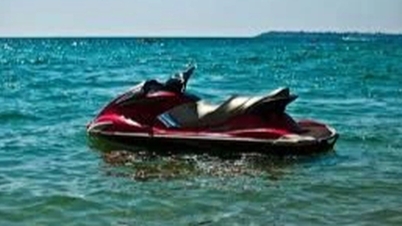



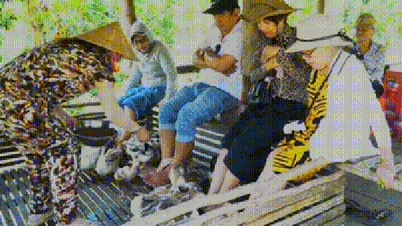
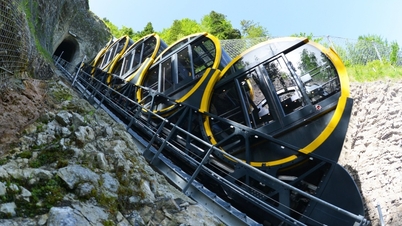


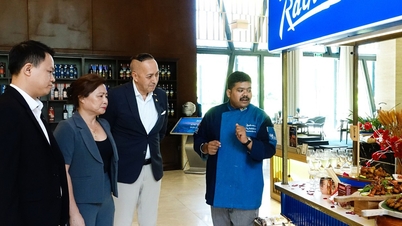





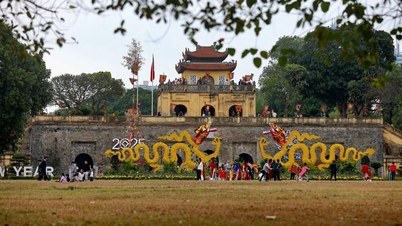

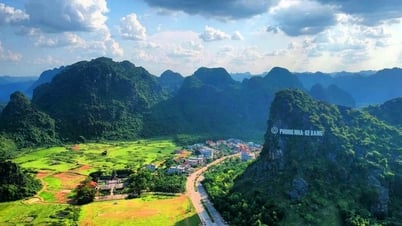

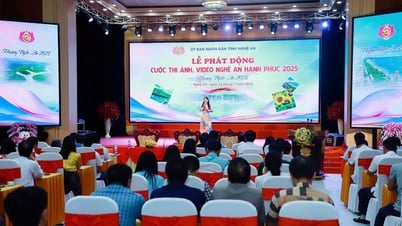


















































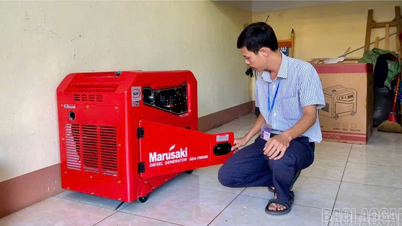














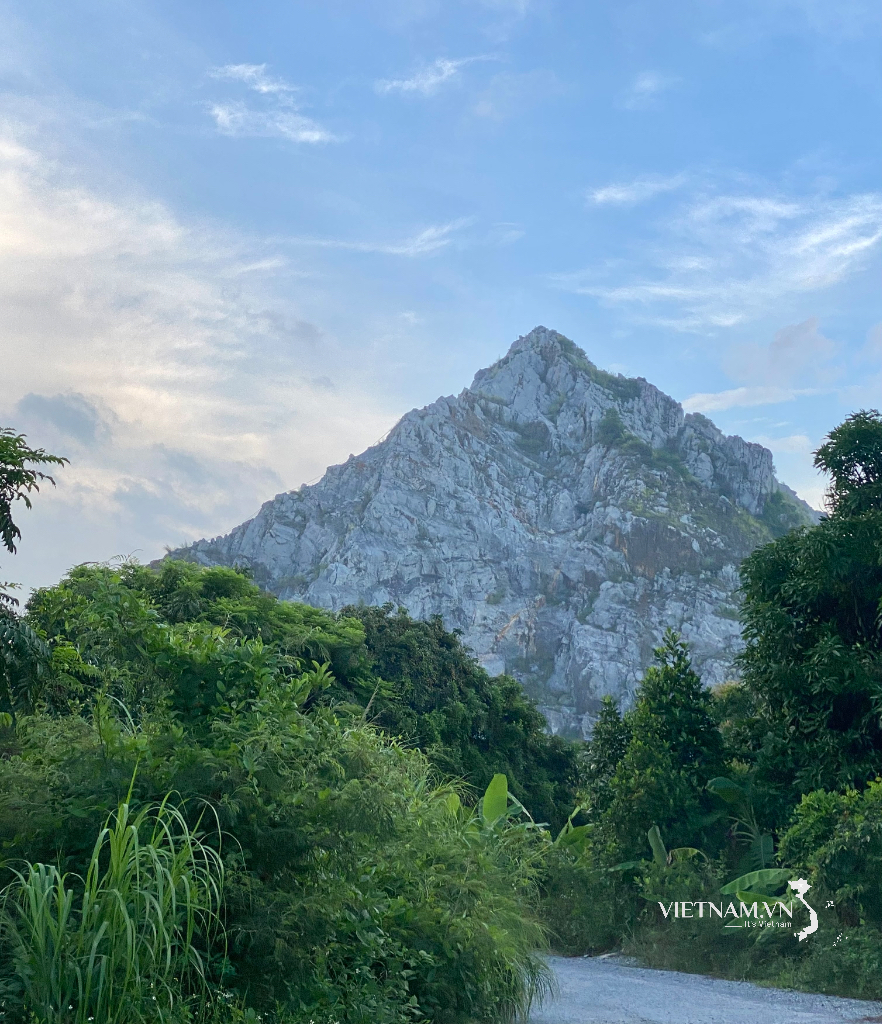



Comment (0)